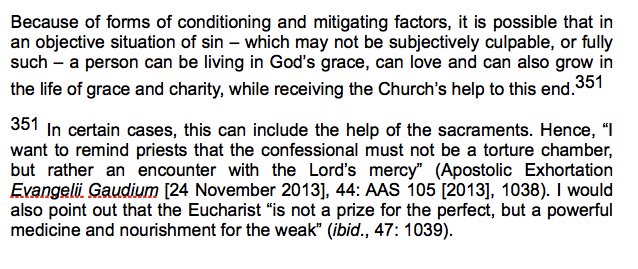 |
| 'You're suspended!' |
I've really no great admiration for Ken Livingstone but suddenly I do have a little sympathy for him. Before British entrepreneur Lord Alan Sugar or anyone else lining up in the politically correct and outraged queue formed in a sudden media storm condemns the Labour politician for 'antisemitism', he and they may want to examine at least some historical research and evidence from the Shoah Resource Centre, that is The International School for Holocaust Studies, which, in its paper on 'The Transfer Agreement and the Boycott Movement' asserts in its introduction:
In the summer of 1933, the Jewish Agency for Palestine, the German Zionist Federation, and the German Economics Ministry drafted a plan meant to allow German Jews emigrating to Palestine to retain some of the value of their property in Germany by purchasing German goods for the Yishuv, which would redeem them in Palestine local currency. This scheme, known as the Transfer Agreement or Ha’avarah, met the needs of all interested parties: German Jews, the German economy, and the Mandatory Government and the Yishuv in Palestine. The Transfer Agreement has been the subject of ramified research literature.
Many Jews were critical of the Agreement from the very outset. The negotiations between the Zionist movement and official representatives of Nazi Germany evoked much wrath. In retrospect, and in view of what we know about the annihilation of European Jewry, these relations between the Zionist movement and Nazi Germany seem especially problematic. Even then, however, the negotiations and the agreement they spawnedwere profoundly controversial in broad Jewish circles. For this reason, until 1935 the Jewish Agency masked its role in the Agreement and attempted to pass it off as an economic agreement between private parties.
And which concludes...
The Jewish boycott against Nazi Germany waned over the years and slipped off the public agenda as Nazi Germany consolidated its economic and international status. The German-Polish non-aggression treaty vitiated anti-German initiatives in Poland, and in the economic treaty between the two countries in November 1935, Germany obtained a Polish commitment to take action against the anti-German boycott committees in Poland.
The Transfer Agreement remained in effect throughout these years, although difficulties in implementing it emerged. The root of these difficulties was the inability of the fledgling economy of Palestine to absorb Jewish capital in the form of goods. Consequently, an attempt was made to expand the sphere of trade from Palestine to the entire Middle East. This gambit ran up against many obstacles, including the anti-Jewish boycott in the relevant countries. Despite efforts to expand the scale of the boycott, many German Jews did not succeed in making use of the capital that they had freed under the Transfer Agreement. An accord similar to the Transfer Agreement, known as the Clearing Agreement, was worked out between the Jewish Agency and the Polish Government in the second half of 1936 and signed in March 1937.
Its purpose was to enable Jewish emigrants from Poland to transfer their assets to Palestine despite Polish currency laws by purchasing Polish goods. Unlike the Transfer Agreement, the “clearing” was supposed to be reciprocal, i.e., to create the possibility of transfers of capital and goods from Poland to Palestine and vice versa. The path to this agreement was complicated, because the Jewish Agency had to protect itself against Polish demands to dictate policy, through the agreement, in the distribution of immigration certificates. Additional difficulties stemmed from internal struggles on the Jewish side. The Revisionists, after having formed a broad front in opposition to the Transfer Agreement when it was being drafted, evinced great interest in the Clearing Agreement and attempted to conclude separate arrangements that would circumvent the Jewish Agency, from which they had seceded by this time. The Clearing Agreement began to coalesce as the condition of Polish Jewry deteriorated and debates on “evacuation” became more frequent. Gruenbaum led the negotiations on behalf of the Jewish Agency, thereby implementing his gloomy prophecy concerning “flight and organized exodus.” These subsequent developments in Poland thus proved the sorrowful impotence of the boycott movement in contrast to the practicality of Zionist formula.
Translated by Naftali Greenwood
Source: Yad Vashem Studies
Vol. XXVI, Jerusalem 1998, pp 129-172
The Transfer Agreement and the Boycott Movement:
A Jewish Dilemma on the Eve of the Holocaust
Yf’aat Weiss
Thoroughly interesting and moving, thought-provoking and now clearly...
THOUGHTCRIME!!!!
Is the Holocaust Remembrance Center an 'apologist for Hitler' as well Ken Livingstone then?
Is this Jewish Historian, Edwin Black, who wrote a book entitled 'The Transfer Agreement' also wrote a book entitled 'IBM and the Holocaust' on that prominent company's role in the genocide of Jews, also an 'apologist for Hitler'?
I'll let the 'antisemitic' Jewish historian fill you in.
Is this Jewish Historian, Edwin Black, who wrote a book entitled 'The Transfer Agreement' also wrote a book entitled 'IBM and the Holocaust' on that prominent company's role in the genocide of Jews, also an 'apologist for Hitler'?
Or is the historical truth just 'antisemitic' and offensive?
The idea that 'Hitler founded Israel' is plain wrong. The idea that - for reasons quite different to the Zionist movement - he tried to establish a homeland for the Jews in the place then known as Palestine is the subject of much historical enquiry, from which some incontrovertible facts have emerged.
I'll let the 'antisemitic' Jewish historian fill you in.

















